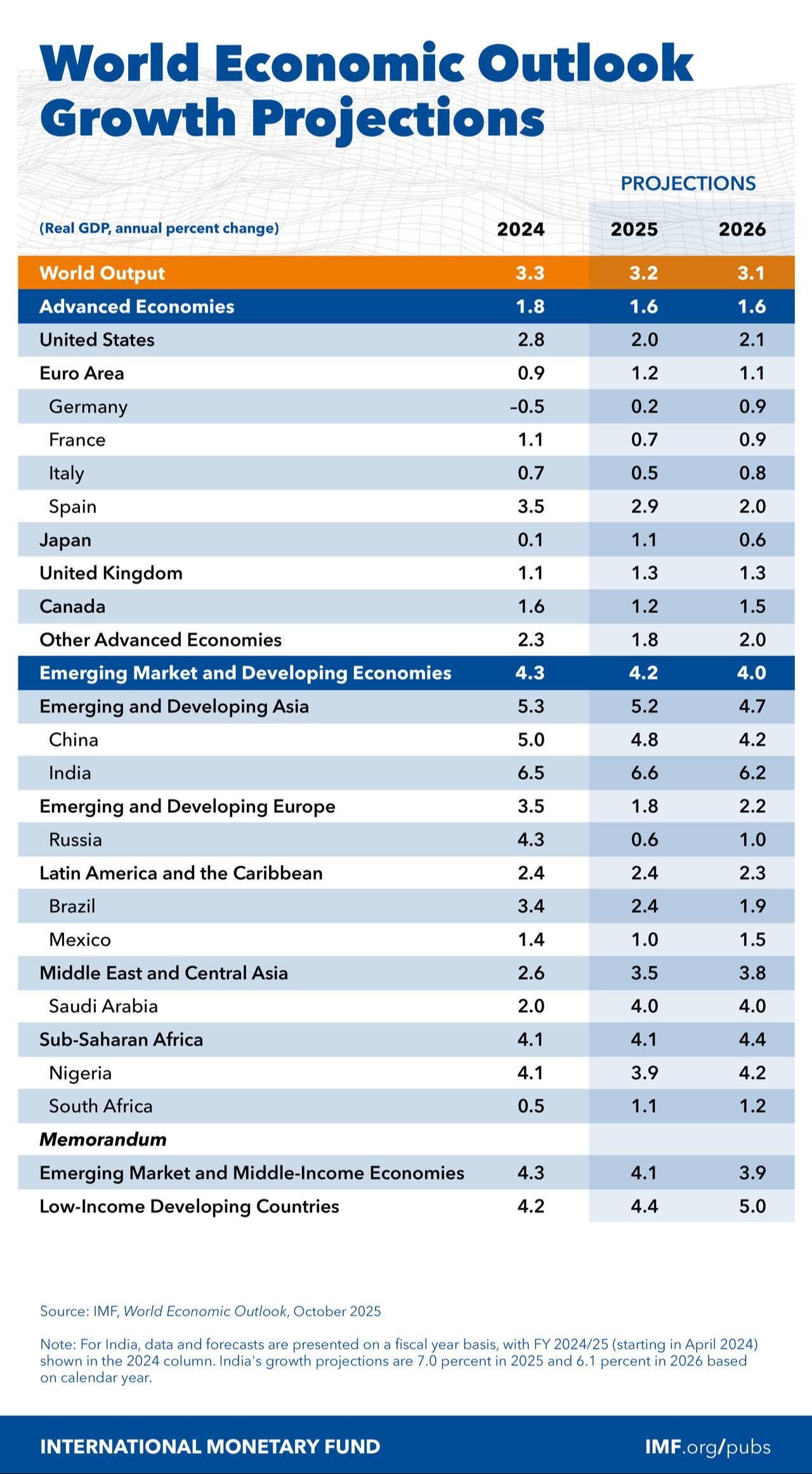
The International Monetary Fund (IMF) raised Türkiye’s growth forecasts for both 2025 and 2026 to 3.5% and 3.7%, respectively, compared with 3% and 3.3% in its July forecasts.
In its October edition of the World Economic Outlook, the Fund attributed its optimism over Türkiye’s economic expansion to strong domestic demand and a resilient services sector, while also warning of rising inflationary pressures as a consequence. The report projected Türkiye’s average inflation at 34.9% in 2025 and 24.7% in 2026, with the unemployment rate expected to stay at 8.3% in both years.
While the growth and unemployment forecasts came in better than the government’s projections in its Medium-Term Program, the inflation outlook remained higher than the official target of 28.5%. Türkiye’s inflation edged up to 33.29% in September, while GDP growth accelerated to 4.8% in the second quarter, and the unemployment rate rose to 8.5% in August.
The IMF raised its global growth forecast for this year to 3.2% from 3% in July, while keeping the 2026 projection at 3.1%. Growth is expected to ease from 3.3% in 2024, reflecting uneven momentum across advanced and emerging economies.
IMF analysts said emerging market economies excluding China performed better than anticipated in the first half of 2025, pointing to record agricultural output in Brazil, robust services in India, and sustained domestic demand in Türkiye as key contributors.
The report noted that protectionist trade policies, led by U.S. President Donald Trump's tariffs first unveiled in April, and uncertainty surrounding tariff frameworks continue to weigh on the outlook. It warned that the global economy is moving toward a more fragmented landscape, with heightened risks for investment and consumption.
While protectionist measures have so far had limited impact on activity and prices, early signs of negative effects are beginning to appear, the IMF said. Headline and core inflation, meanwhile, showed slight increases across most economies.

Among advanced economies, the IMF revised its U.S. growth forecast for 2025 to 2% from 1.9%, and for 2026 to 2.1%. The Euro Area is now expected to grow 1.2% this year, up from 1%, though its 2026 outlook was trimmed slightly to 1.1%.
Within the bloc, Germany’s growth forecast was raised to 0.2%, France’s to 0.7%, while Italy’s projections remained unchanged at 0.5% for this year and 0.8% for next year. Spain’s economy is set to expand 2.9% this year, up from 2.5%, before moderating to 2% in 2026.
In the United Kingdom, the growth estimate for 2025 was lifted to 1.3%, while the 2026 projection was trimmed to the same level. Japan’s economy is forecast to grow 1.1% this year and 0.6% next year, both upward revisions from earlier expectations.
The IMF maintained its growth projection for China at 4.8% this year and 4.2% in 2026, suggesting the country’s post-pandemic recovery remains stable but subdued.
India’s economy continues to lead global growth, with projections raised to 6.6% for 2025, though slightly reduced to 6.2% for 2026. Russia’s forecast was lowered to 0.6% this year but kept at 1% for next year.
The Fund warned that continued trade fragmentation and policy uncertainty could limit medium-term growth prospects for developing economies.